
Television auteur David Milch, who wrote "NYPD Blue," "Deadwood," "John From Cincinnati," and many other shows, wrote all of those shows orally. That is to say, he didn't ever touch a keyboard or put pen to paper. Instead, he lay on the ground, surrounded by several other writers and interns, and inhabited his characters, reciting their dialogue, which someone else transcribed.
If you've ever heard Milch talk, this method makes sense. He gave a series of talks during the screenwriters strike of 2007 as a sort of ersatz course on screenwriting, which is fascinating, seemingly random and yet deeply structured, like many of Milch's shows. In these talks, Milch mixes jokes, anecdotes from his own life, lessons he learned from his teacher Robert Penn Warren, and dicta such as "Don't think about writing when you're not writing."
But fundamentally, the lectures hold a worldview, a religious sense of writing as an act of "going forth in grace." As part of this, Milch told a story that has haunted me for years. It's a doubled story of brothers and of fathers and sons. Now, in his book "Life's Work: A Memoir," released this week by Penguin/ Random House, Milch puts this story, in many ways the central drama of his life, into print, in what is surely, the final act of his life's tale.
The tragic news that Milch was suffering from Alzheimer's came out in 2019, just before HBO finally aired the long-promised movie that was supposed to allow Milch to complete the arc of the 2004-2006 western "Deadwood," which the cable network unceremoniously canceled after three seasons.
With "Deadwood," Milch was at the height of his powers at the moment that television writing had entered a so-called "golden age." In film, the director was the creative force behind a work of art. But with long-form streaming television, writers were given the title "showrunner" — at that time it seemed like it was mostly white men named David — and the control over the artistic vision of a series, which could develop in depth and complexity over dozens of hours of television.
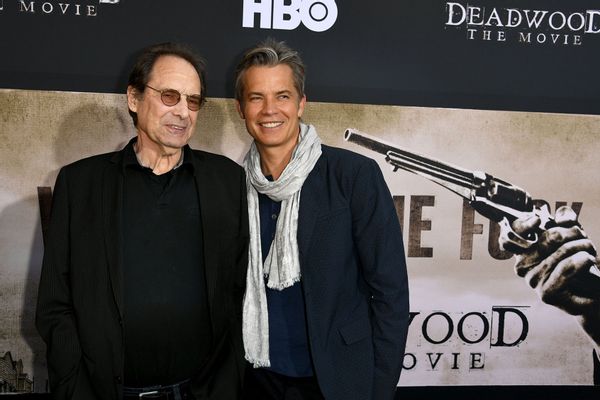
In many ways, Milch was the precursor of this late golden age, bringing a previously unseen depth and realism to the police procedural with "NYPD Blue," which ran on ABC from 1993-2005. Andy Sipowicz (Dennis Franz), a racist and violent detective, anchored the show in the way that other morally despicable antiheroes would hold down the greatest shows of the streaming era, from Tony Soprano through Fleabag.
"Deadwood" would do to the Western what "NYPD Blue" did for the police procedural — and then some. Milch and his team had persistently pushed the network censors. But with the freedom — and Medici-esque budgets — of HBO on demand, Milch was able to craft a universe with a fierce and filthy aesthetic that at once created a new realism and made questions of verisimilitude moot.
In one of the show's first scenes, Ellsworth, a miner, delivers a speech that feels both Shakespearian and naturalistic.
"I'll tell you what. I may've fucked my life up flatter than hammered shit, but I stand here before you today beholden to no human cocksucker," he says. "And workin' a payin' fuckin' gold claim."
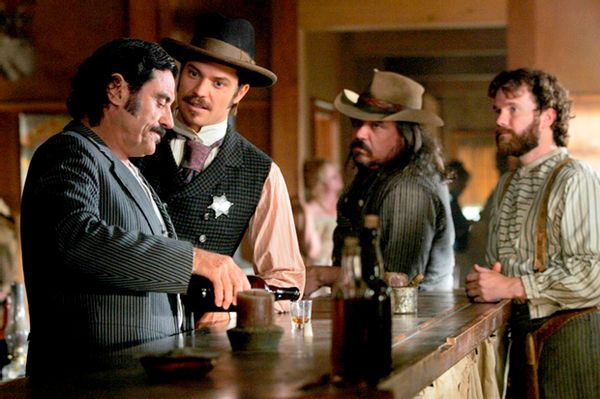
As the crew wrapped the third season, HBO canceled "Deadwood," but promised a double-header of feature films to wrap up the story and greenlit Milch for a much cheaper show with the novelist Kem Nunn about a family of surfers and assorted dirtbags who end up involved in mystical hijinks surrounding the titular "John from Cincinatti," who may be God — or the internet or something like that.
It was beautiful and weird — and got swiftly canceled after a truncated season. The "Deadwood" movies never materialized, and Milch's last HBO show "Luck," with director Michael Mann was canceled after a horse died in the filming.
So, under any circumstances, for Milch fans, the ultimate release of the "Deadwood" movie would necessarily have a bittersweet quality. The film is set ten years after the series ended, so that the time that had elapsed in the universe of Deadwood was roughly the same as that which had passed in the real world. Like the characters and the actors, we, the audience, had also grown older and the gold rush of the "golden age" of television was starting to go bust. Knowing that Milch, whose singular vision created the style and tone of language for every character, was losing his memory, made it even more heartbreaking.
"It's a kind of relentless series of adjustments to what you can do, in particular the way you can't think any longer," Milch told the New Yorker's Mark Singer in 2019, of his diagnosis.
Even before the diagnosis was public, Milch and his family had been using the recordings of various talks he gave, either in public or as part of his process in the writer's room of his shows, to put together a memoir "Life's Work," both to help Milch recover what he can of his life — and to pass on the hard-won wisdom of his hard-lived live and tell some of his great stories. But it is a fraught prospect from the start.
"I'm intimidated and concerned about the limitations my health will impose on writing this book, an ongoing process of discovery," he writes in the preface.
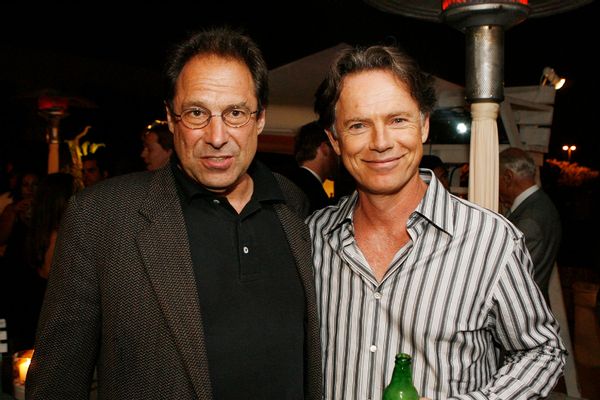
As the book makes clear, Alzheimer's is hardly the first time in his colorful career that Milch has worked through conditions that others would find debilitating. He manufactured acid and was addicted to heroin while he worked with Robert Penn Warren and R.W. B. Lewis on an anthology of American literature. In 1982, after writing a script for "Hill Street Blues," he got a staff job on the show, from which he would fly to Las Vegas, where he'd gamble all night, and fly back in the morning for work. The gambling obsession stuck with him through most of his life, resulting in his wife Rita's discovery in 2017 that Milch had racked up $24 million in gambling and tax debt.
It was his half-hearted and yet acclaimed academic career that brought Milch into television. Milch and Lewis, whom he refers to as Dick, were working together on a project about the family of William and Henry James, the psychologist and novelist, with Lewis writing the book and Milch writing the scripts for a series.
"You could see all of America in them and they were such full people and it could have been a great show," Milch writes. "In 1979, we were down at the National Endowment getting dough, and Dick was called out of the room while we were pitching."
After the pitch, Lewis told Milch, "Listen, when I was called out of the room, they were telling me that your father had died, taken his life, and his instructions were that you were not to be told until after the pitch was finished."
Milch's father, Elmer, was a renowned surgeon, but he was also a narcotics addict and alcoholic with ties to the underworld. Throughout "Life's Work," Milch shows how these two parts of his father were inherited by his two sons, David, who saw himself as a degenerate, and Robert, a surgeon who embodied all of Elmer's respectable side.
But, when Robert had to take over care of Elmer, who had stomach cancer, and "because his sense of self was so associated with his professional identity as a physician, he became convinced that since my brother had become the caregiver in my family, my brother was having sexual relations with my mother."
Milch's father "took his life in front of them," Milch writes, "to punish them for that and then his final words were 'Don't tell David until he's done with his pitch.'"
It's a horrendous, sad story, but about 75 pages later, Milch returns to it. "If you end the story at my dad's death, it's not the whole story," he writes. There is, in fact, an amazing, binge-worthy payoff to this crucial scene. But in the book version, Milch, uncharacteristically, botches the timing of the rest of the story, rushing through this pivotal moment after its reintroduction. But in the lectures, Milch masterfully ties this traumatic biographical event to his overall aesthetic theory in a way that is as moving as the finale of any season of any show he wrote.
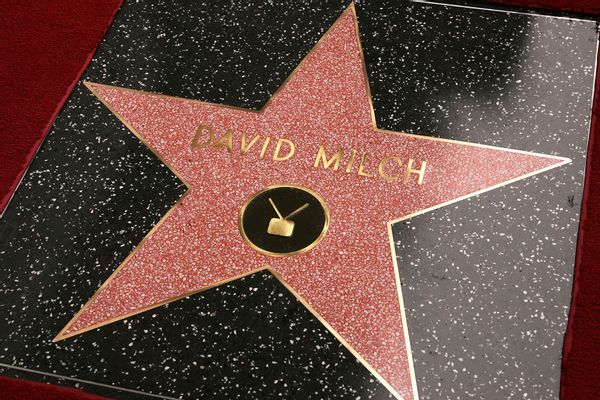
Immediately after the story of his father's suicide, Milch refers the audience of the fourth day of lectures back to one of his touchstones, Robert Penn Warren's poem "I Am Dreaming of a White Christmas," which ends with the lines:
All items listed above . . . are parts of the original dream which
I am now trying to discover the logic of. This
Is the process whereby pain of the past in its pastness
May be converted into the future tense.
Of Joy.
Milch always refers to Warren as "Mr. Warren" or "my teacher Mr. Warren," heightening the effect of each citation by making him into a recurring character in the story.
Milch says that sharing — discussion, art, the kind of conversation they were engaged in at that moment — is one of the ways that the pain of the past in its pastness is converted to the future tense of joy. That is what he has tried to do with art. But then he returns to his brother, the other storyline.
"In my brother's goodness after my father's death, he retrained himself, he resigned his position as a surgeon and retrained himself as a hospice physician in order to better care for the dying," Milch says. "And that process too is the process whereby the pain of the past in its pastness is converted to the future tense of joy."
The future, Milch says, "continually reinterprets the meaning of the past." That is the principle that guides a great show, when a plot event makes you reinterpret something you had previously seen.
"If one stopped the story at the moment of my dad's passing, that story would have a completely different meaning and it's the business of art to sink its roots deep and identify how the fanciful interpretation of experience which would have us understand it as a despairing and isolating experience," Milch says. "If the fanciful associations are removed, it becomes the imaginative experience, which is joy."
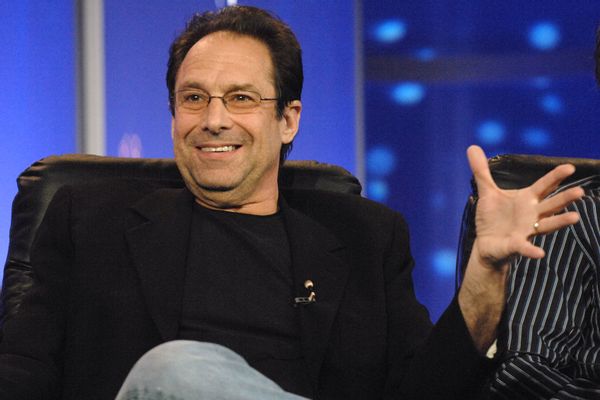
It is the ability to see beyond oneself that makes a writer and this is, perhaps, especially true of the writer of the modern television series like "Deadwood," where one must have the ability to see the unity of the world of the show rather than the viewpoint of a single character. Milch, in the quasi-mystical mood of his lectures, likens this view, this ability to see the mining camp of Deadwood as a whole, rather than through the eyes of a single character, to St. Paul's declaration that we are all one in the body of Christ.
Milch's memoir has some brilliant moments, but it fails in this regard. Perhaps because it is the work of a man trying to piece together his life for himself, with the help of his family, it is necessarily stuck to its own vantage point, which is itself painfully pieced together from fragments, gathered and recorded over the years..
As he speaks in old videos, Milch is always doing different voices, almost acting out his stories — essentially turning narrative into dialogue, at which he is a master. When he's talking you can hear Swearingen or Sipowicz, both of whom, he has said, share characteristics with both himself and his father.
Dialogue is what Milch is best at and it is what "Life's Work" lacks. Some of Milch's distinctive voice is maintained, but as a whole, most of the stories are better told verbally. On the page, the tales lose some punch.
On the other hand, if you like Milch's shows and don't know anything about the person who made them, this book is a great introduction and a wild ride. It is a story of drug abuse, sexual abuse, privilege, rebellion, luck, both good and bad, and finally grace. But most of all, it should serve as a spur to go back and watch Milch's best work, "Deadwood," "John from Cincinnati," and even the pilot episode of a show about state surveillance called "The Big Apple," which referred not only to the surveillance state in New York City but also to the Garden of Eden.
Near the end of the book, Milch exhorts us to keep going. "Let me say from my heart: Don't give up on mass culture. Contribute to it. Break your heart in trying to make it better. Our species is in the fight for its life and nobody says the decision is going to go in one way or another. Put your bodies and your spirits up."
That's the big game David Milch was after in his writing: finding the universal in the specific, the imaginative in the fanciful and the writer at the farthest reaches. And, as in his life, Milch often failed in his writing. But in that failure, David Milch is, in many ways, at his most beautiful.







